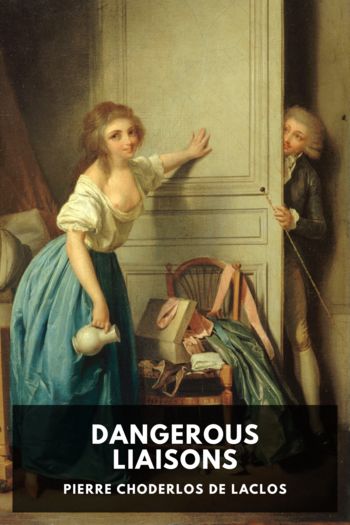The Disappearance of Stephanie Mailer: A gripping new thriller with a killer twist, Joël Dicker [general ebook reader .txt] 📗

- Author: Joël Dicker
Book online «The Disappearance of Stephanie Mailer: A gripping new thriller with a killer twist, Joël Dicker [general ebook reader .txt] 📗». Author Joël Dicker
What affected me most was that Mark couldn’t understand or sympathize. Not knowing how to handle my distress, he simply went over and over the story, saying, “My God, Betsy, if you’d stayed home that evening . . . You were on leave! You didn’t even have to answer your phone! But you always have to show willing.” I think he was angry with himself for not making me stay. He could see I was distraught, and he was angry. I was allowed a period of leave, but I didn’t know what to do with it. I stayed home, brooding. I felt depressed. Mark did try his best to cheer me up, he’d suggest I go for a walk, go running, go to a museum. But he couldn’t get beyond that anger eating away at him. In the cafeteria of the Metropolitan, as we were having a cappuccino after a visit, I said to him:
“Every time I close my eyes, I see that man in front of me, holding his two guns. I don’t notice the adhesive tape around his hands, all I see are his eyes. I have the impression he’s terrified. But he doesn’t obey. The girl’s there in front of him, blindfolded . . .”
“Betsy, not here, please, we’re here to cheer ourselves up. How can you move on from this if you never stop talking about it?”
“Shit, Mark,” I cried, “this is my reality!”
Not only had I raised my voice, but in an abrupt gesture I had knocked over my cup. The customers at the other tables stared at us. I felt weary.
“I’ll get you another,” Mark said in a conciliatory tone.
“It doesn’t matter. I think I need to walk. I need to be alone for a while. I’ll go for a walk in the park, I’ll see you at home.”
I recognize with hindsight that Mark’s problem was that he didn’t want to talk about it. I wasn’t interested in his opinion, and I wasn’t looking for his approval. I just wanted someone to listen to me, whereas he wanted to act as if nothing had happened, or else as if everything was forgotten.
I had to talk freely. On the advice of the squad’s psychologist, I talked about it with my colleagues. They were all attentive. I went for a drink with some of them, others invited me to dinner at their homes. These excursions did me good, but, unfortunately, Mark got it into his head that I was having an affair with one of my colleagues.
“It’s funny,” he said, “you’re always in a good mood when you come back from your evenings out. It makes a change from the way you are when you’re with me.”
“Mark, don’t be stupid, I just went for a coffee with one of the team. He’s married and has two kids.”
“Oh, that’s a comfort to know he’s married! Because married men never cheat on their wives, do they?”
“Mark, don’t tell me you’re jealous?”
“Betsy, you sulk all day when you’re with me. You only smile when you go out on your own. And I’m not even talking about the last time we had sex!”
I couldn’t explain to Mark that he was imagining things. Or maybe I didn’t tell him often enough that I loved him. In any case, I was guilty of neglecting him, of dwelling too much on what was getting me down, of abandoning him. He finally found the attention he had been missing with a female colleague, who had been biding her time. The whole office knew about it, which meant so did I. The day I found out about it, I went to stay at Lauren’s.
Then came the period of Mark’s regrets, his excuses, his begging me to come back. He made honorable amends to my parents, who started pleading his case after he’d vented our whole life in their living room.
“Betsy, all the same!” my mother said to me. “Four months without sex.”
“Mark told you that?” I said, aghast.
“Yes, and he cried.”
I think the most difficult thing was not Mark’s torment, but that, in my mind, the seductive, protective man, the one who saved lives in restaurants and charmed everyone, was now a whiner who complained to my mother about our sex life. I knew something was broken, and at last, in June 2013, he agreed to a divorce.
I was tired of New York, made weary by the city, its heat, its size, its unending noise, its lights that never went out. I wanted to settle somewhere else, I wanted change, and, as chance would have it, in the New York Literary Review, to which I subscribed, I came across an article about Orphea:
THE GREATEST LITTLE THEATER FESTIVAL
by Steven Bergdorf
Do you know this gem called Orphea, nestled in the Hamptons? A little paradise where the air seems purer and life gentler than elsewhere, which every year hosts a theater festival whose main production is always special and of high quality. [. . .]
The town itself is worth a visit. Its Main Street is a jewel of peace and quiet. Its coffee shops and restaurants are delightful and attractive, the stores enticing. Everything here is both dynamic and pleasant. [. . .] If you can, stay at the Lake Palace, a really superb hotel just outside the town, with a magnificent lake on one side and an enchanting forest on the other. It is like being in a film set. The staff waits on you hand and foot, the rooms are spacious and elegantly decorated, the restaurant sophisticated. It is hard to leave this place once you have experienced it.
I took a few days’ leave while the festival was on, booked a room at the Lake Palace, and went to Orphea. The article hadn’t exaggerated: I discovered there, so close to the city, a wonderful, protected world. I could immediately picture myself living there. I fell under the spell of its





Comments (0)